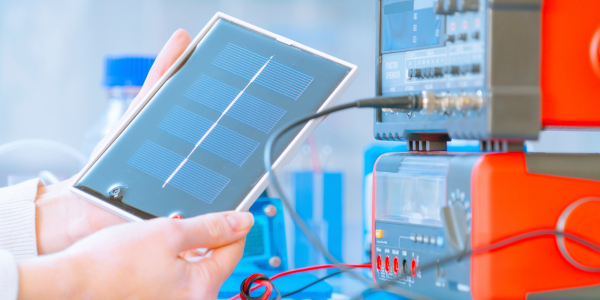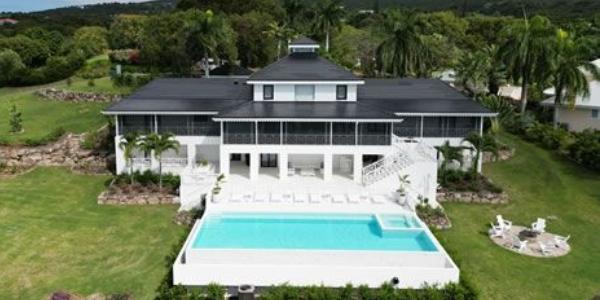Harnessing the sun from lab to roof

By Florida Roofing and Sheet Metal Contractors Association.
The leaders in energy technology are innovating solar.
For the past 48 years, the Florida Solar Energy Center (FSEC) has been on the frontier of energy research. Operated out of Cocoa, Florida, it was created by the Florida Legislature in 1975. FSEC has been producing high-quality and frequently used research for generations. The center’s main goals are energy education and demonstration for others. They cover research on renewable energy, energy efficiency and sustainable transportation research. FSEC is crucial to FRSA as they have the leading developments in solar roofing technology.
FSEC has nearly 50 years of experience in renewable energy systems and building science. The Center’s 70-member staff include professionals with expertise in engineering, energy research, building science, energy and policy analysis, as well as education and training.
Research at FSEC is based on field monitoring, computer simulations and controlled experiments in laboratories with highly specialized instruments. As a result of FSEC’s extensive research capabilities, its programs are nationally and internationally recognized and include:
- High performance buildings
- Solar technologies
- Hydrogen and fuel cells
- Electric vehicles
- Energy systems and storage
Solar technologies research
The FSEC Energy Research Center is a leader in solar research, specializing in hot and humid climates. It conducts a wide range of research in solar technology, from long-term reliability and durability testing to thin-film photovoltaic production techniques.
Photovoltaic capabilities
The photovoltaic (PV) capabilities at the FSEC Energy Research Center range from small-scale thin film PV cell manufacturing to large-scale commercial PV systems testing. Photovoltaic capabilities also include module durability and onsite testing and field evaluation of solar lighting systems. Instructor-led, hands-on training and photovoltaic technical support are also areas of expertise.
Module testing laboratory
The module characterization lab complements the outdoor infrastructure and completes the photovoltaic module testing capability. Researchers are able to conduct world-class diagnostic and baseline PV module measurements using electroluminescence (EL) imaging, infrared (IR) thermography imaging, I-V and Suns-Voc flash testing and dark I-V. Their system is capable of performing these measurements while simultaneously inducing static and dynamic loads using mechanical load tester.
Inverter test facility
Testing parameters
Hot, humid climate provides operational challenges for equipment manufacturers. Fortunately, the FSEC Energy Research Center provides highly reliable results for photovoltaic array and inverter testing. Researchers collect and analyze data to characterize the performance of inverters and PV systems in different configurations. They gain useful insight into key performance concerns, including array and inverter efficiencies and system reliability.
The inverter test facility includes a configurable 12-kW PV array and four parallel test beds. Each test bed monitors the following parameters: DC voltage, DC current, AC voltage, AC power and inverter temperature. A separate, synchronized data logger records solar irradiance, ambient temperature and several PV array temperatures.
Data collection
Inverter testing includes data collection in near real-time for DC input currents and voltages and AC output parameters. Multiple internal and external inverter temperature location points are measured. Cumulative energy harvests and instantaneous power measurements are also recorded.
Component testing
The capability exists to test grid-tied string inverters, micro-inverters, grid-tied battery backup and off-grid battery backup technologies. Data collection includes near real-time meteorological data, alongside the photovoltaic array and inverter data sets. Measurements include direct and diffused solar irradiance, ambient temperature, rainfall amount, relative humidity and wind speed.
Auxiliary site test facility
Located approximately three miles from the main office building in Cocoa, Florida, the auxiliary site test facility is capable of testing large-scale commercial PV systems. More than 100kW of installed sub-systems are constantly monitored and analyzed. The currently installed infrastructure can accommodate upwards of 200kW of photovoltaic systems.
Photovoltaic materials laboratory
Researchers and graduate students in the Photovoltaic Materials Laboratory conduct a wide range of research for the development of renewable energy. Research projects include PV module aging and durability testing, the development of thin film solar cells for terrestrial and space applications and the development of photoelectrochemical (PEC) cells for hydrogen production. This lab has excellent facilities for the preparation and characterization of large 4”x 6” solar cells, which are viable to serve as a nucleus of a pilot plant for fabrication of CIGSS thin film mini modules.
Advanced PV system performance
Floating solar photovoltaic systems
Floating photovoltaic (FPV) systems, also known as floating solar, are electricity-generating solar panels affixed atop buoyant platforms, sited directly on bodies of water. This research project will monitor the performance, durability, water-quality impacts and biodiversity interactions of four existing U.S. floating solar sites across diverse climatic regions.
Photovoltaic systems monitoring
The reliability of a photovoltaic system is dependent upon all of its components. The PV modules, inverter, charge controller, meter and switches must all work together. UCF researchers have extensive systems monitoring experience, ranging in size from small residential systems to large-scale commercial systems.
Photovoltaic durability research
Photovoltaic degradation analysis
Photovoltaic modules degrade in a variety of ways when exposed to different environmental conditions. Researchers are investigating degradation processes that impact long-term module reliability and durability. Research areas include the development of accelerated aging protocols to screen for specific failure modes, development of novel module characterization techniques to detect and quantify degradation and identifying new degradation pathways in emerging technologies. Module characterization reveals how the performance degrades and points researchers to analyze specific components of the packaging scheme (e.g., encapsulant, cell, interconnects). Cored samples of cells can be extracted from modules and characterized to probe potential causes for degradation at the material level. This provides insights that could be used to find areas of improvement through the process chain.
Photovoltaic mechanical durability testing
Mechanical durability is one of the most critical aspects of module reliability because modules commonly experience external mechanical loads from snow and wind once in the field. These mechanical loads can cause cells within the module to fracture, causing electrical breaks that reduce the module performance. With the use of a novel mechanical load tester for photovoltaic modules, researchers are currently exploring how different module designs influence mechanical durability. Each component of the module, including the solar cells, interconnects, module packaging and frame design, all have a unique impact on the overall susceptibility to cell cracking. In addition to evaluating module designs, there is also research focused on improving the qualification testing protocol for mechanical durability. With the use of real-world field data, researchers are working to make accelerated testing protocols that better replicate mechanical loads and environmental conditions that are observed in the field.
Photovoltaic technology development
Wafering technology
Improving photovoltaic manufacturing materials and processes leads to decreased manufacturing costs. Analysis of water surfacing indicated that some wires generate lower surface roughness than others.
Photovoltaic module interconnection
Photovoltaic manufacturing companies have developed innovative methods of connecting cells together to improve performance and reliability. UCF researchers are evaluating novel interconnection technologies, such as SmartWire and shingled cells, to provide information that will help accelerate industry adoption of higher performing modules. Since interconnection failures contribute to module failures experienced in the field, it is important to improve existing systems and validate the reliability of emerging technologies.
Solar thermal research
Solar thermal research is one of FSEC’s flagship programs and includes both solar water heating and solar cooking. Although there are no current research projects on solar thermal, FSEC has a long history of testing and research on this topic that ranges from commercial systems to solar weatherization programs to low-cost solar ovens for third-world countries.
Solar cooker development and testing
In developing nations, some cannot gather fuel or afford to buy it to cook their food or purify their water. Low-cost solar cookers are a solution. This research project was created to improve the performance, reliability and cost-effectiveness of low-cost solar cookers for use in developing nations.
Florida Solar Standards are designed to meet the intent of legislation while also helping the Florida solar industry to develop quality products, aiding building departments in product approval and instilling confidence in the consumer who chooses to use solar energy in their residence or business.
In accordance with Florida law (§377.705, F.S.), the Florida Solar Energy Center is charged to “develop and promulgate standards for solar energy systems manufactured or sold in the state based on the best currently available information….” and “establish criteria for testing performance of solar energy systems...” The standards developed by FSEC are incorporated by reference in rules (Rules 6C7-8.006 through 6C7-8.010) that are published in the Florida Administrative Code.
As the demand for solar energy continues to grow and additional research projects are added, FSEC will continue to be a valuable source of information for the building and roofing industry.
Original article source: Florida Roofing and Sheet Metal Contractors Association
Learn more about Florida Roofing and Sheet Metal Contractors Association (FRSA) in their Coffee Shop Directory or visit www.floridaroof.com.








Comments
Leave a Reply
Have an account? Login to leave a comment!
Sign In